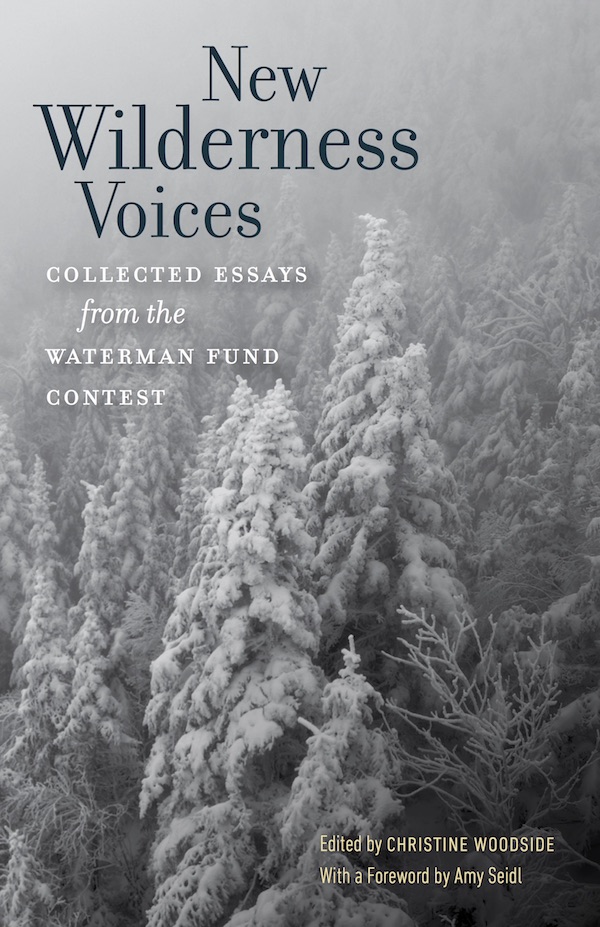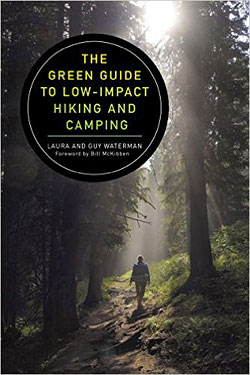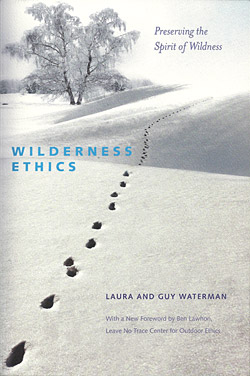Published ‘Ethics’ Books
New Wilderness Voices: Collected Essays from the Waterman Fund Contest
Edited by Christine Woodside
With a foreword by Amy Seidl
A literary celebration of the Northeast’s wild places
Guy and Laura Waterman spent a lifetime reflecting on and writing about the mountains of the Northeast. The Waterman Fund seeks to further their legacy of stewardship through an annual essay contest that celebrates and explores issues of wilderness, wildness, and humanity. Since 2008, the Waterman Fund has partnered with the journal Appalachia in seeking out new and emerging voices on these subjects, and in publishing the winning essay in the journal. Part of the contest’s mission is to find and support such emerging writers, and a number of them have gone on to publish other work in Appalachia or their own books. The contest has succeeded admirably in fulfilling its mission: new writers have brought fresh perspectives to these timeless issues of wilderness and wildness. In New Wilderness Voices these winning essays are collected for the first time, along with the best runners-up. Together, they make up an important and celebratory addition to the growing body of environmental literature, and shed new light on our wild spaces.
The Green Guide to Low-Impact Hiking and Camping
Guy and Laura Waterman
With a foreword by Bill McKibben
“A classic of backpacking literature” (Backpacker), now updated with a brand-new foreword by environmentalist and best-selling author Bill McKibben.
Originally published as Backwoods Ethics in 1979, Laura and Guy Waterman’s definitive guide to low-impact hiking and camping was a prophetic call to reevaluate the impact our outdoor recreation on the wilderness. In his foreword to the new edition, world-famous environmentalist Bill McKibben puts the Waterman’s advice into context for today’s world.
Wilderness Ethics: Preserving the Spirit of Wildness
Laura and Guy Waterman
With a foreword by Ben Lawhon
In this classic environmental call to action, Laura and Guy Waterman look beyond preserving the ecology of the backcountry to focus on what they call its spiritual dimension—its fragile, untamed wildness. “Without some management, wildness cannot survive the number of people who seek to enjoy it,” they write. “But with too much management, or the wrong kind, we can destroy the spiritual component of wildness in our zeal to preserve its physical side.” Trailside huts and lodges; large groups seeking “wilderness experiences”; federal and state regulations; emergency helicopters; and technology all have an impact on our experience. With humor and insight, the Watermans explore these difficult wilderness-management issues. They ask us to evaluate the impact that even “environmentally conscious” values have on the wilderness experience, and to ask the question: What are we trying to preserve?
Periodically, the Waterman Fund purchases and distributes copies of these books. In past years, the books have been distributed to backcountry professionals, seasonal employees and members of boards of directors of groups such as the Appalachian Trail Conservancy, Appalachian Mountain Club, Green Mountain Club, Randolph Mountain Club, Wonalancet Outdoor Club and agencies such as the US Forest Service and National Park Service.
If you are interested in having your organization receive copies of either book, please contact Waterman Fund for details.
"Guy made us push our limits and ideals to find a point on which we could stand. He didn’t make us who we are but rather helped us to stay there."
Rebecca Oreskes
Recreation and Wilderness Program Leader, White Mountain National Forest



